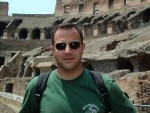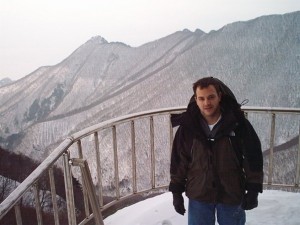Discovering Engineering: All Around the World
This week First Book is sharing stories about science and engineering from some of our friends at Lockheed Martin. Today’s guest blogger is Jeff Marier, an aerospace engineer with Lockheed Martin in Syracuse, New York.

Looking for some adventure, I joined the Air Force right out of high school and got introduced to the engineering career field almost by accident when I was assigned as an electronic intelligence/radar technician. Fortunately, this turned out to be a very exciting field involving both cutting-edge technology and world-wide travel. Inspired by my superior officers, all of whom were electrical engineers, I chose, instead of reenlisting in the military, to pursue an electrical engineering degree from the University of Toledo (bachelor’s) and Syracuse University (master’s).
During my career at Lockheed Martin, my favorite part of my job has been developing very complex radar systems and delivering them all over the world. There is nothing more rewarding than to see your ideas go from the conceptual stages on paper to an actual system working on the top of a mountain somewhere around the world. The greatest inspiration for my work is that the systems we deliver typically have a direct impact on the security of those countries and our customers understand and appreciate that. Along with that, living in countries like Taiwan, Korea, Italy, Japan and Croatia for extended periods has allowed me to not only learn about many new cultures and places but has also gave me a greater appreciation of what we have here in the United States.
 Engineering to me is essentially just creative problem solving. To help expose kids to the engineering career field, I visit many grade schools throughout the year and challenge student teams with open-ended projects that, given constraints on time and materials, encourage them to develop solutions by trial and error. Usually the most successful students tend to be the ones that have creative solutions and are willing to take risks by trying new things.
Engineering to me is essentially just creative problem solving. To help expose kids to the engineering career field, I visit many grade schools throughout the year and challenge student teams with open-ended projects that, given constraints on time and materials, encourage them to develop solutions by trial and error. Usually the most successful students tend to be the ones that have creative solutions and are willing to take risks by trying new things.
If you’re a student, what do you think of Jeff’s job? What do you like (or dislike) about studying science and math in school?
